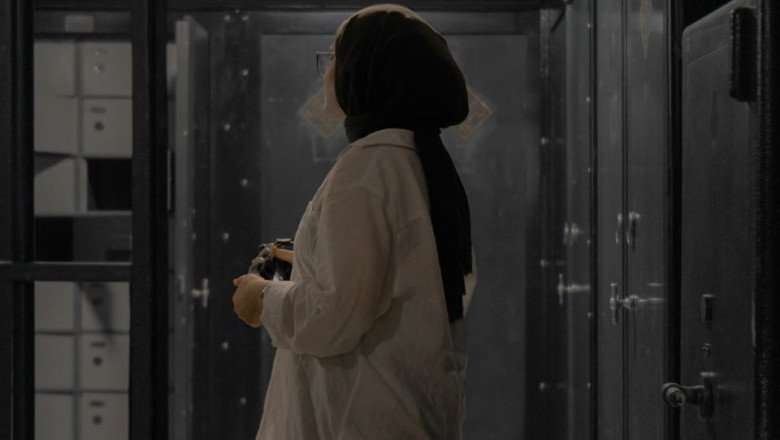
views

Sponsored Article.
Dubai serves as a primary hub for the storage and trade of precious metals. Gold, silver, platinum, and palladium are commonly stored here in highly secure facilities. One of the most prominent storage options is the DMCC Vault. Located in the Almas Tower, this facility offers 24/7 security and various storage options. Managed by Brink's Global Services, the DMCC Vault is the largest non-sovereign vault in the Middle East. It supports clients from multiple regions, prioritizing security and accessible services.
Another notable option is the GVS Bullion Group. This company provides high-security storage facilities with flexible trading options for precious metals. GVS Bullion Group offers tax-free storage and returns, guaranteeing complete data protection. Known for its extensive experience in precious metals trading, GVS Bullion Group provides a discreet alternative to traditional safe deposit boxes.
Private vault services also constitute a distinct category of storage facilities in Dubai. These private companies specialize in secure storage solutions for precious metals, offering allocated and segregated storage. Comprehensive insurance coverage, regular audits, and account management services are available, enhancing the reliability and safety of the storage.
In addition to these private facilities, many banks in Dubai offer safety deposit boxes within their premises. These safety deposit boxes are housed in secure vaults, providing an added layer of protection and privacy for gold bullion storage.
When storing precious metals in Dubai, reliable insurance and security measures are critical considerations. Banks provide conventional storage through safety deposit boxes, benefiting from institutional security measures. For those seeking a more customized approach, opting for a private safe in Dubai allows for increased accessibility and space. Specialized companies offer high-security vaults, ensuring robust protection of valuable items. Each option must be evaluated to determine the most suitable arrangement for individual security and convenience needs.
Insurance is an essential aspect of precious metals storage. Many storage facilities and private vault services in Dubai offer tailored insurance options. These policies protect investments against theft, damage, loss, or natural disasters. Before selecting a provider, reviewing the insurance terms, coverage limits, and any exclusions is crucial.
Dubai ranks among the top three physical gold trade hubs globally, handling 20%-30% of the world's gold trade annually. The UAE's foreign trade in precious metals reached AED 440.4 billion (USD 120 billion) in the first nine months of a recent year. This figure marks an 18% increase compared to the same period in the previous year. A substantial share of this trade passes through Dubai, affirming its importance in the global precious metals market. Additionally, gold bullion is exempt from VAT in the UAE. This tax exemption makes it an enticing option for investors.
The economic and market trends associated with precious metals in Dubai show steady growth. The precious metal derivatives market in the UAE is projected to reach a nominal value of USD 13.26 billion in 2024, with an anticipated annual growth rate. Notably, investors in the UAE's precious metals market observed a 10-year high for gold bars and coins in 2023. This upward trajectory is expected to continue, with a steady rise in gold value anticipated worldwide in the subsequent years.
Investors are showing increasing interest in diversifying their portfolios using Precious Metal Derivatives. These financial instruments offer a hedge against market volatility. Customer preferences are shifting towards incorporating precious metals into their investment strategies. Figures indicate considerable growth in commodity derivatives, their notional value, the number of contracts traded, and open interest at the end of the fiscal year. The average value per contract also reflects this trend.
The precious metals market in the UAE undergoes regular updates twice a year to account for changing market dynamics. Forecasting future trends employs the HOLT-damped Trend method, which suits this market's behavior. Critical drivers include GDP per capita and the online banking penetration rate. Understanding these market dynamics is essential before investing in precious metals.
Global economic indicators, such as GDP and inflation rates, significantly influence precious metal prices. AI investment research tools can assist in deciphering these concepts, offering insights for informed investment decisions. Offshore storage of precious metals is advocated to safeguard assets from potential government controls. As a result, Dubai, along with other jurisdictions like Singapore and Switzerland, remains a preferred choice for offshore storage.
The Foreign Account Tax Compliance Act imposes reporting requirements for foreign financial assets. However, physical precious metals held in non-bank offshore storage facilities often fall outside these reporting requirements, a benefit particularly relevant for U.S. investors. The precious metal market is anticipated to expand at a particular CAGR from 2024 to 2030, reaching multimillion USD by 2030. In the UAE, the Precious Metal Derivatives market is expected to reach a nominal value of USD 13.26 billion in 2024, with an annual growth rate.
Name:
Email:
Comment:
Confirm you are not a spammer:
https://www.dubai.com/blog/where-store-your-precious-metals-dubai/
























Comments
0 comment